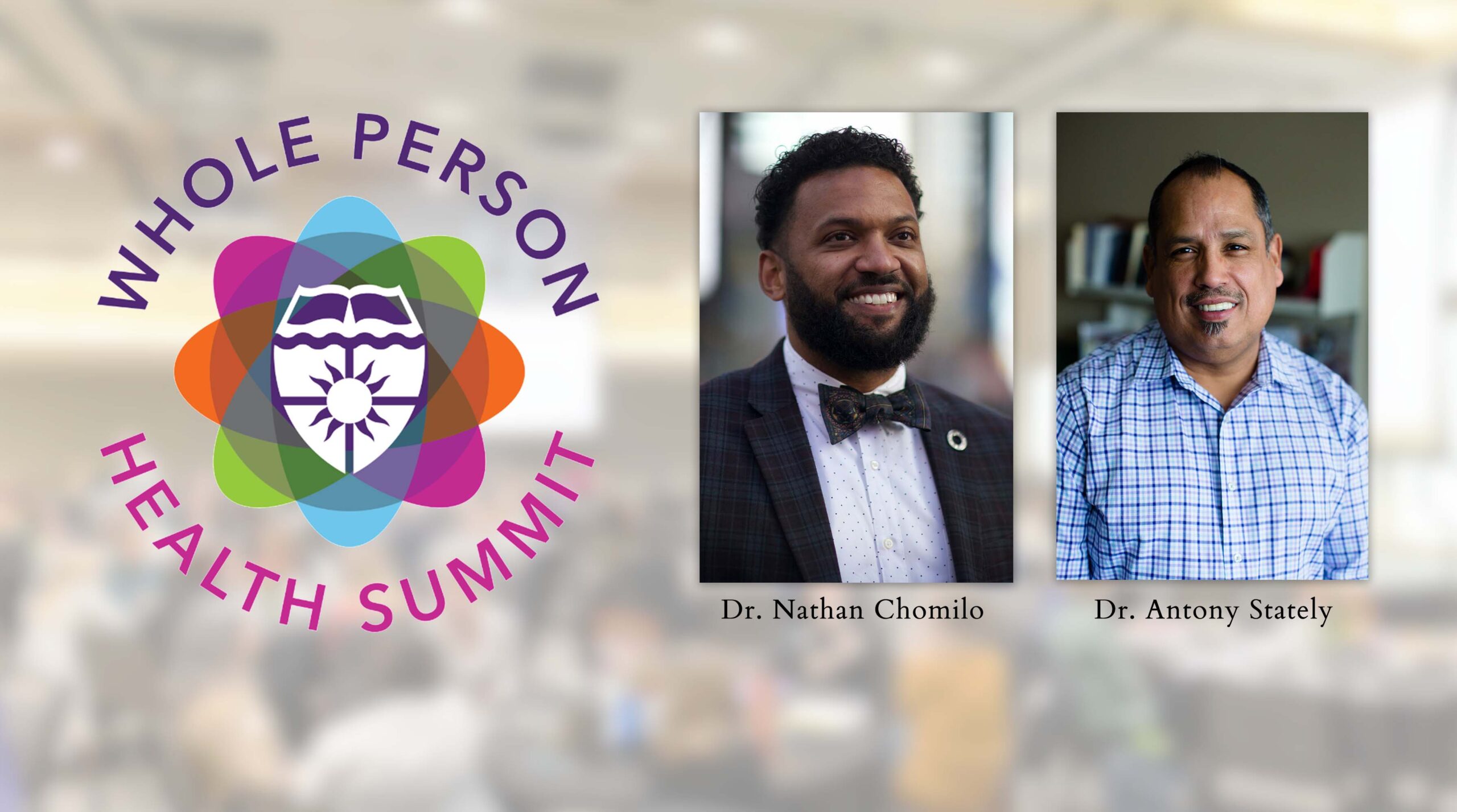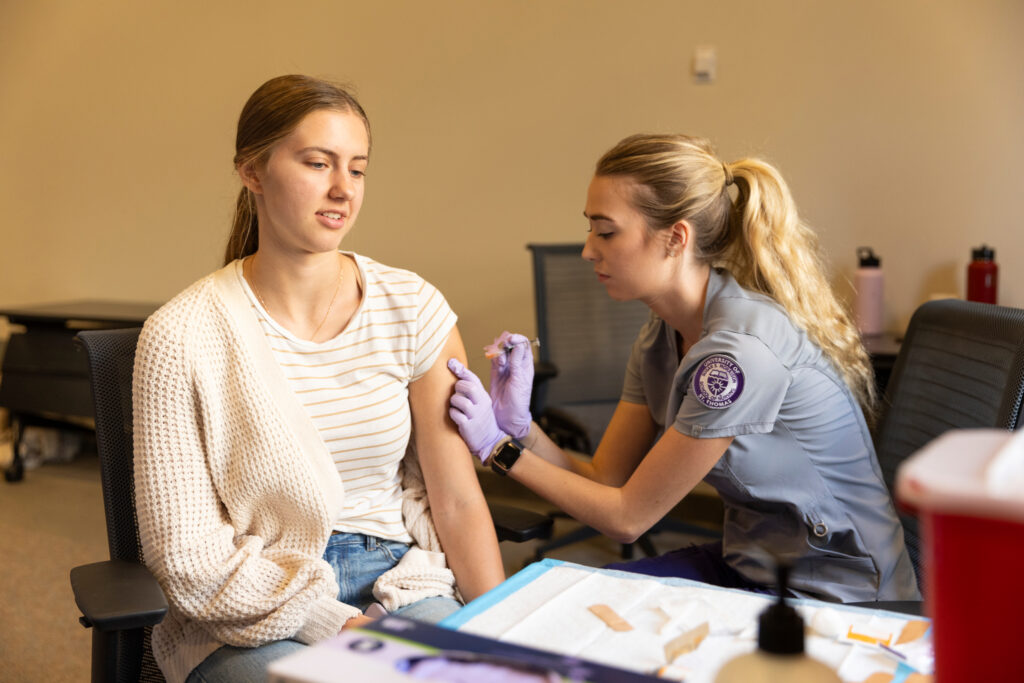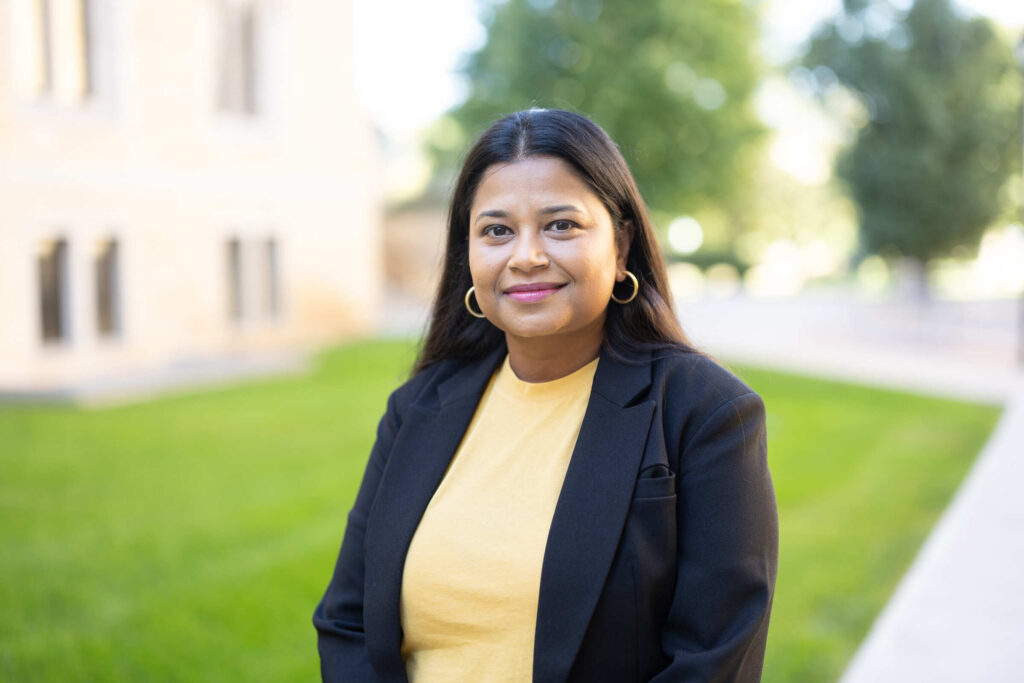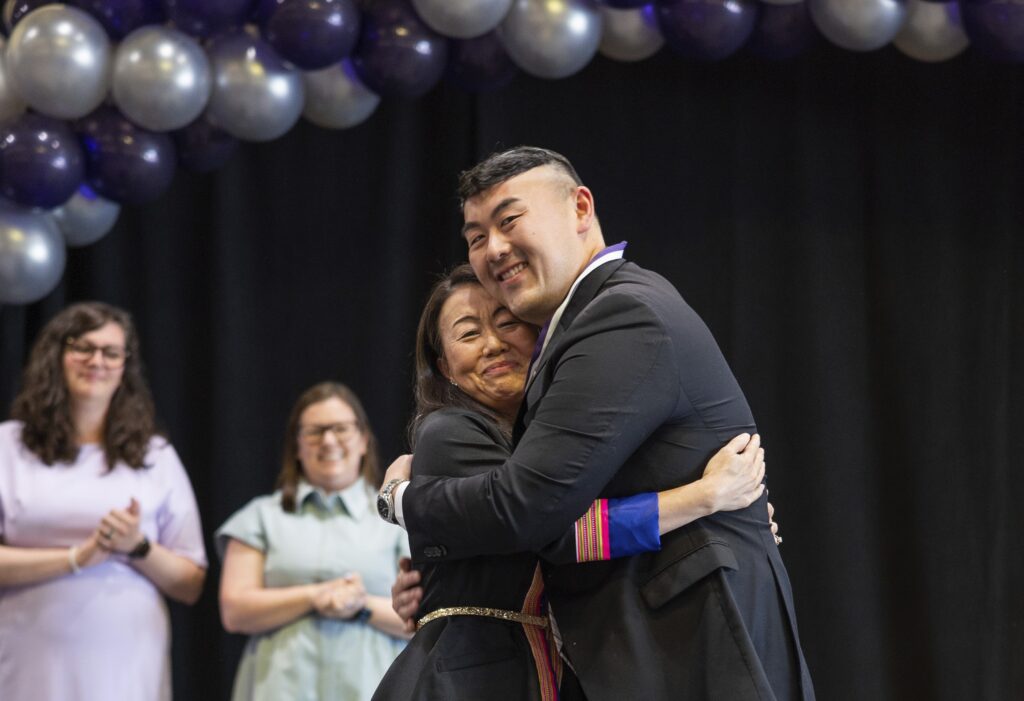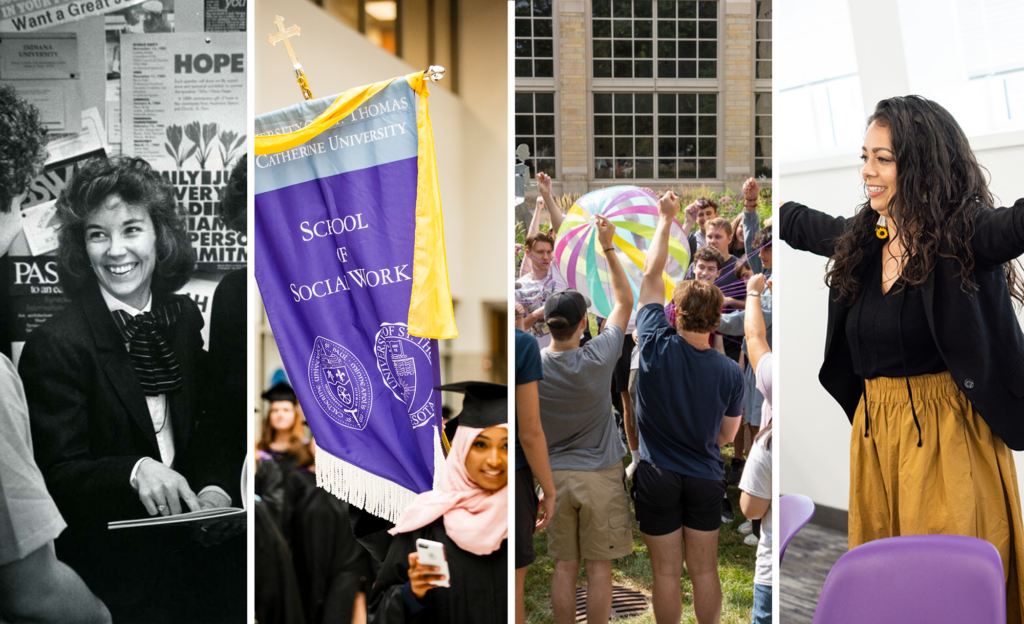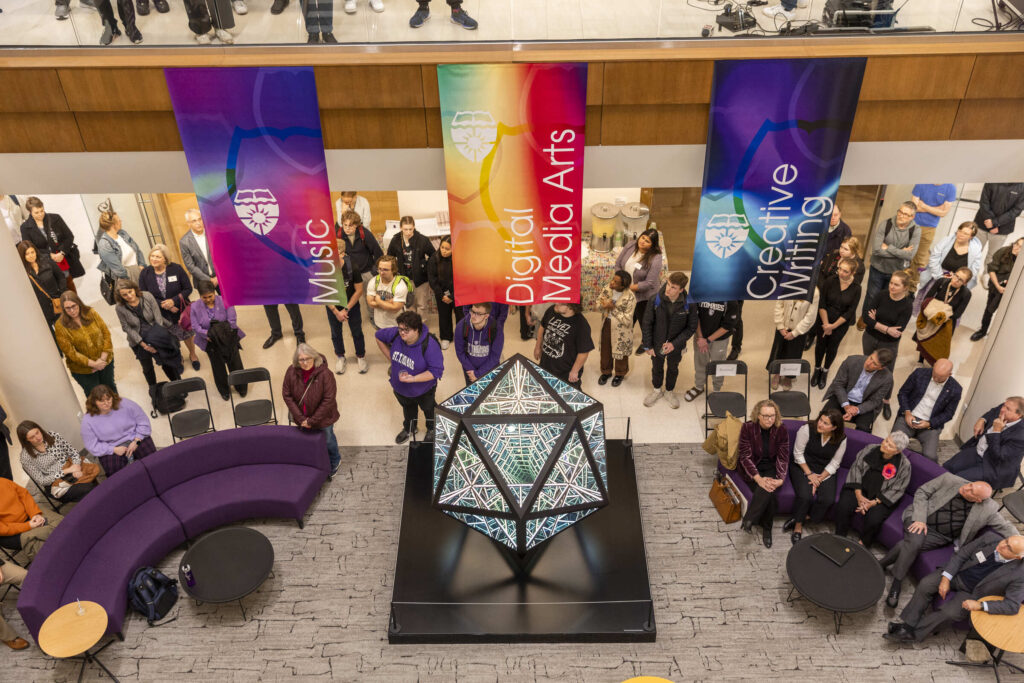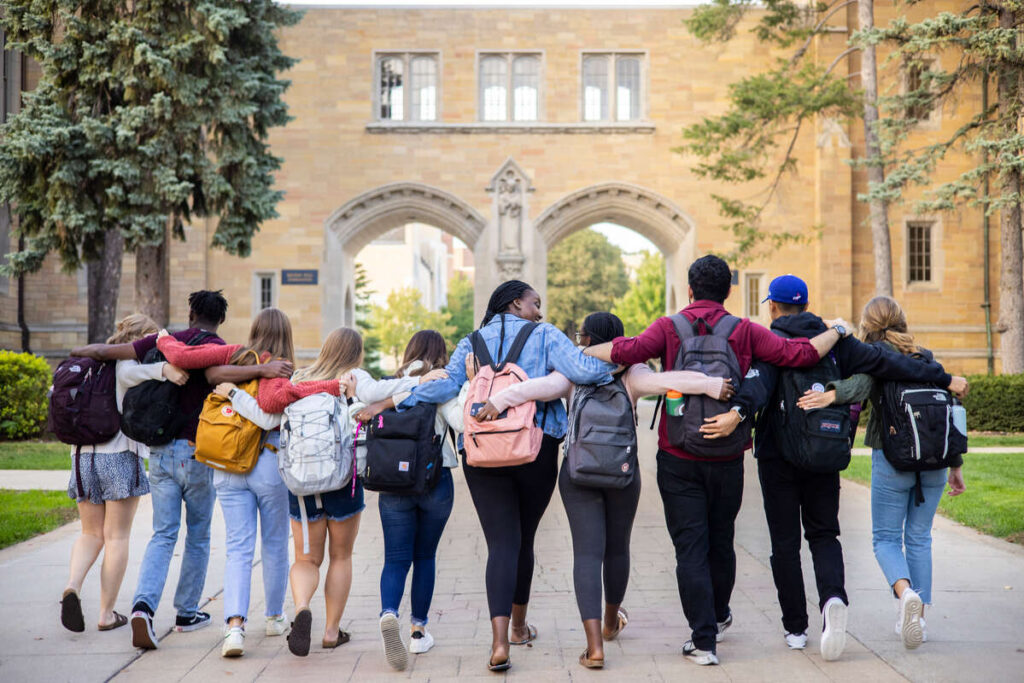When Dr. Antony Stately took over as president of the Native American Community Clinic in south Minneapolis, he decided to launch a traditional healing program. Hiring Ojibwe and Dakota elders to perform ceremonies and provide patient consultations, the program integrated centuries of Native wisdom into the clinical model and put a deliberate emphasis on community healing.
Stately will discuss his work to change how we care for our neighbors and the world we live in at the Morrison Family College of Health’s Whole Person Health Summit being held April 16 at the University of St. Thomas.
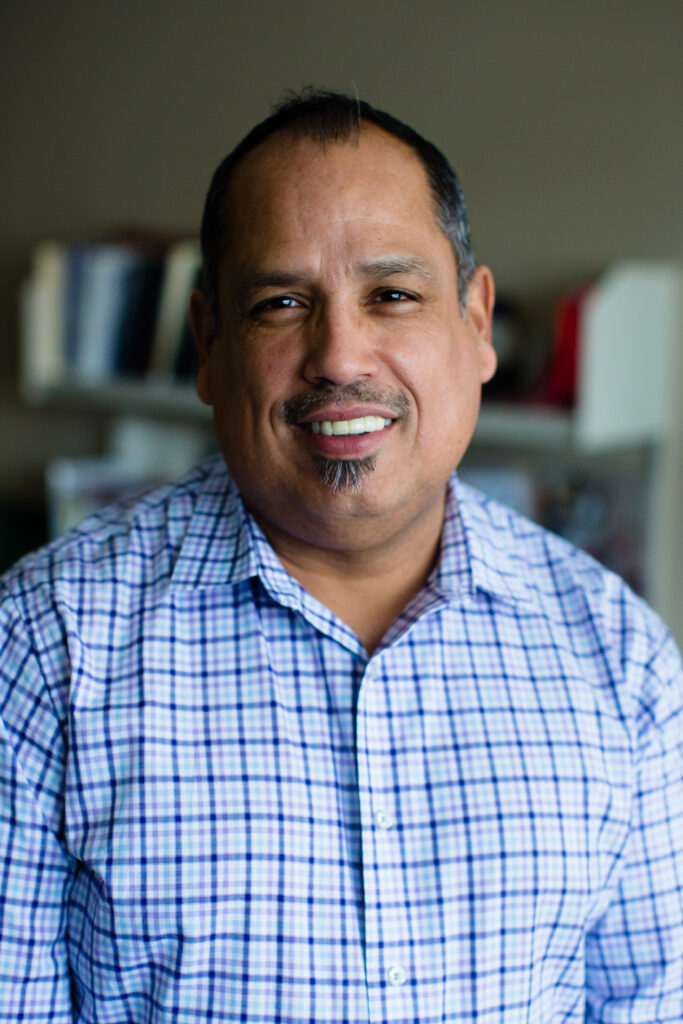
“It’s become increasingly clear to me how critical this work is of tending to not just myself, and not just to those people who walk in the doors of our clinic, but how can we strengthen and fortify our youth, protect our elders, and really, heal our entire community,” said Stately, who is an enrolled citizen of the Oneida Nation of Wisconsin and descendent of the Great Red Lake and White Earth Nations of Minnesota.
A keynote speaker at this year’s summit, Stately plans to explore Indigenous ways of thinking about whole-person health, which extend far beyond oneself and into the world around us.
“Across the United States and here in Minnesota we’ve lost a primary value within this idea of whole-person well-being about the importance of relationality,” Stately said. “We need to understand the relationship that we have to other human beings and to the other things that rely on us to show up and be good human beings.”
The Whole Person Health Summit, which held its inaugural gathering in 2023, brings together health care leaders, policymakers and community members to share ideas and collaborate on strategies to advance health equity. Meant to be a true convening of viewpoints and experiences, attendees are invited to identify next steps for themselves and the communities they serve.
“It’s a summit for a reason. It’s not just us distributing information out, it’s actually dialogue and conversation,” said Dr. MayKao Y. Hang, founding dean of the Morrison Family College of Health. “We must convene and have meaningful dialogue in order to build a shared understanding from which we can organize and advance systems change.”
This year’s theme – Inspiring Hope, Health, and Community Healing – will explore healing at multiple levels, including for communities that have been traumatized by violence or harmed by systemic disinvestment.
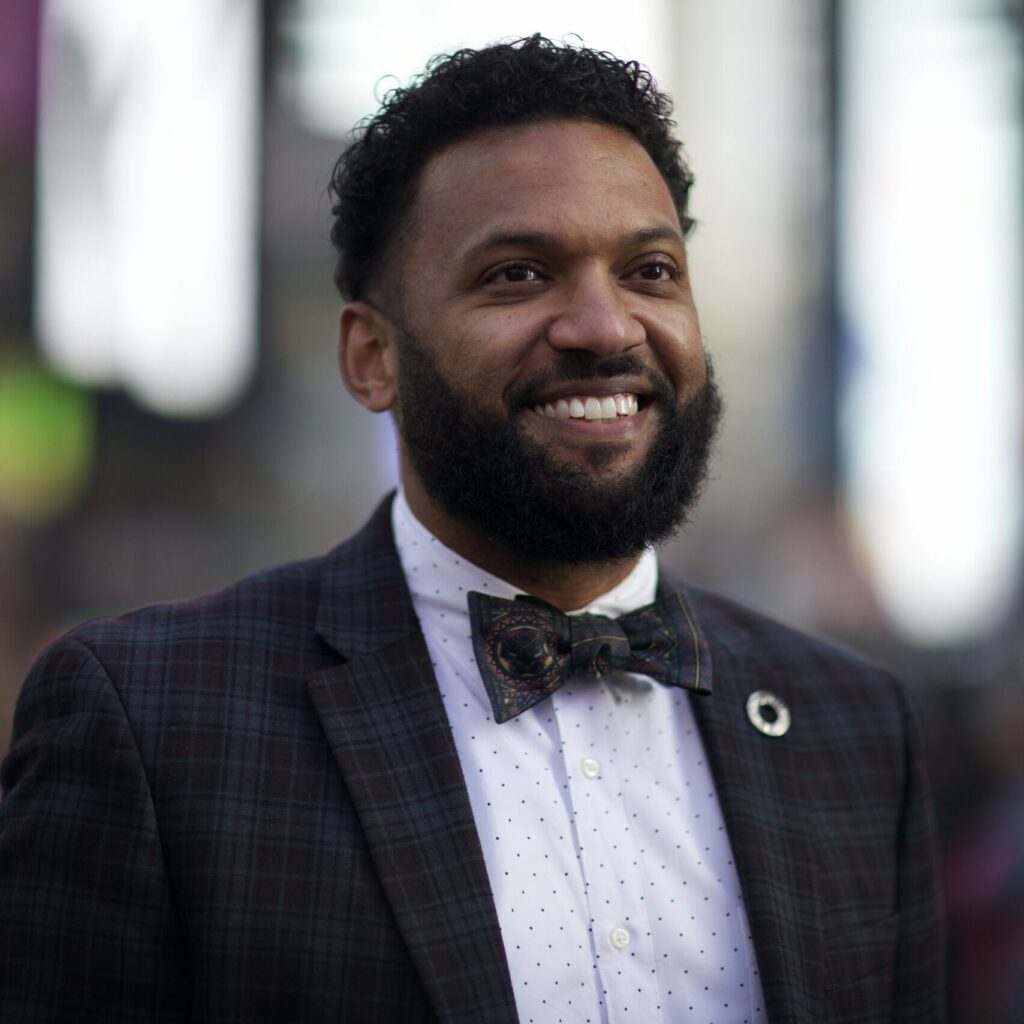
Dr. Nathan Chomilo, medical director for Medicaid and MinnesotaCare at the Minnesota Department of Human Services, will provide the afternoon keynote address. Named one of the 100 most influential health care leaders in 2020 by Minnesota Physician, Chomilo’s work addresses structural racism and health equity within Minnesota’s health systems.
“The act of actually recognizing the harm the state has placed on community members and contributed to the disparate outcomes … that is an important step towards healing and building healthy relationships,” Chomilo said.
In recent years, Chomilo has researched how structural racism and colonialism have impacted health and opportunity for Black and American Indian individuals. Passing policy change in response to those findings has led to positive impacts across Minnesota.
“By focusing on our communities that have been marginalized, it can not only help heal them, but actually make us all healthier,” Chomilo said.
Advocating for health equity through culturally responsive, whole-person care is woven throughout Morrison Family College of Health programs. In addition to the annual summit, a Health Equity Breakfast Series serves to continue the conversation throughout the year. Recent meetings have brought together Twin Cities stakeholders to discuss topics like end-of-life care and cultural ways of healing.
“We’re interested in how we, as a college, can invite conversation about advancing health equity through whole-person care and create opportunities for people from different experiences and backgrounds to come together to share promising approaches and co-create solutions,” Director of Health Equity Program Development Melanie Ferris said.
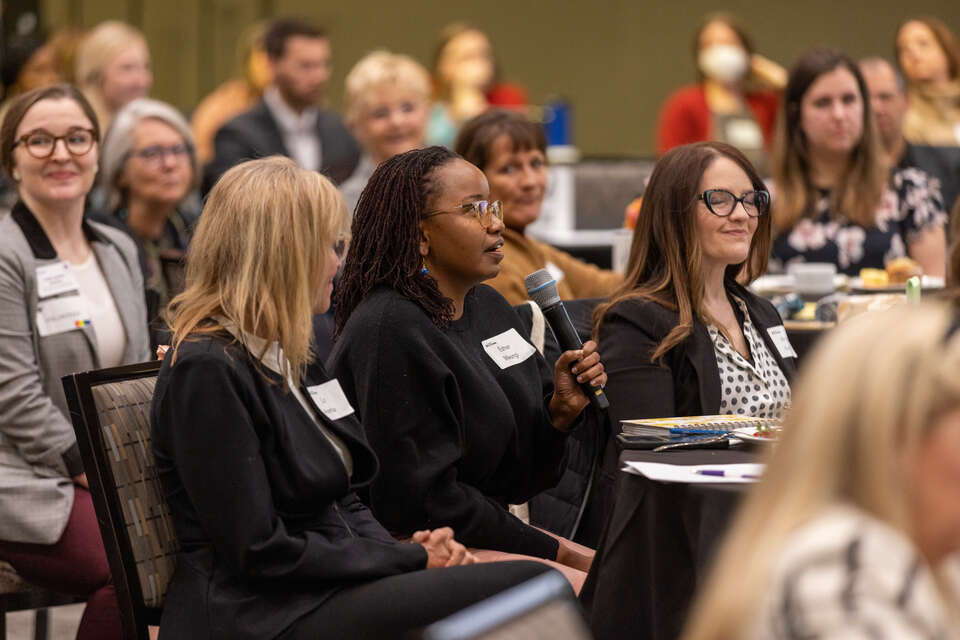
The April 16 summit will feature a variety of speakers and breakout sessions all dedicated to the concept of whole-person care – addressing the physical, social, mental and spiritual well-being of a person. This year attendees can also participate in several hands-on activities that feature best practices to mediate stress and nurture body, mind, spirit and building community.
“People are hungry for this integration work,” Hang said. “Often people don’t talk about whole-person health and health equity together. I hope this summit allows us to reframe how we think about these concepts and create a space to learn with and from community leaders, health professionals, healers, policy makers, and advocates.”
For more information and to register for the Whole Person Health Summit, visit the summit’s webpage.
Elie Engel ’27 contributed to this story.
